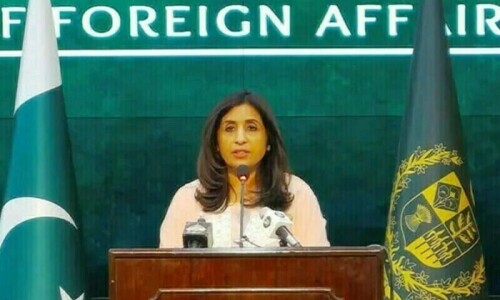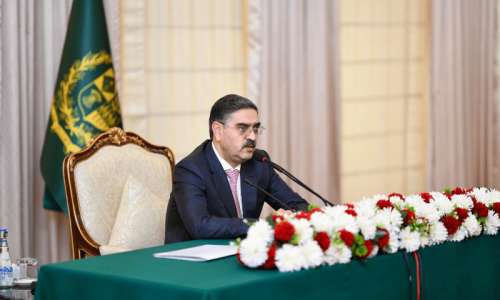ISLAMABAD: Mullah Sherin Akhund, a senior Afghan Taliban figure and governor of Kandahar province, is expected to arrive in Islamabad early next month in a fresh bid to resolve the stalemate in bilateral ties over the banned Tehreek-i-Taliban Pakistan (TTP) issue.
Mullah Sherin’s interactions in Islamabad will include meetings with intelligence and Foreign Office officials.
The visit follows efforts by the Afghan Taliban to reduce tensions with Pakistan concerning the outlawed TTP. In a similar vein, the Taliban previously invited Maulana Fazlur Rehman of the JUI-F to Kabul, hoping he would facilitate dialogue.
The FO, however, downplayed the significance of Mr Rehman’s trip saying it was an invitation for a private individual.
Mullah Sherin, a key figure in the Afghan Taliban, has played various roles in the group’s military and political spheres. His close ties to the senior leadership and involvement in significant Taliban activities make him a prominent and influential member of the Afghan rulers’ leadership structure.
He has previously been engaging with Pakistan, and is known to have liaised with the TTP on behalf of the Taliban administration.
The ongoing stalemate over the TTP issue has strained Pakistan-Afghanistan relations, exacerbated by the TTP’s terrorist activities in Pakistan and Kabul’s failure to act against the group operating from Afghan territory.
During a conversation with Senator Mushahid Hussain in Tehran, Taliban Foreign Minister Mullah Muttaqi highlighted the lack of high-level communication between Islamabad and Kabul, leading to mutual allegations and a blame game.
The Taliban’s return to power in Afghanistan in August 2021 initially appeared promising for managing the TTP issue. The Taliban facilitated meetings between the Pakistani military and the TTP, resulting in a ceasefire agreement and Pakistan releasing senior TTP leaders. However, the ceasefire was short-lived due to ongoing skirmishes and the TTP’s unilateral termination of the agreement.
Pakistan has consistently called for the Afghan Taliban government to take decisive action against the TTP and related militant groups operating from Afghan soil, including extraditing leaders responsible for attacks in Pakistan. The Taliban government, however, has been hesitant to comply, because of historical alliances and ideological ties.
While the Afghan Taliban have not met Pakistan’s demands regarding the TTP, there is speculation that they have restricted the group from directly launching attacks.
Published in Dawn, December 31st, 2023













































Dear visitor, the comments section is undergoing an overhaul and will return soon.